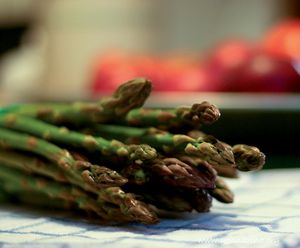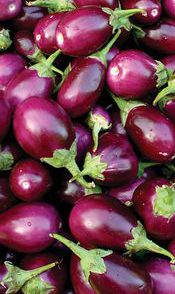Here comes the rainy, cold, damp weather that clings to Florence for most of the winter. And with it comes the ever-present threat of colds and sore throats. There are many things you can do to ward off a cold or minimize the effects of one you already have, things that don’t require a trip to the pharmacy. What you need is right in your pantry.
Historically, mothers were in charge of remedies for all but the most serious ailments, and many old cookbooks are full of advice on maintaining health. I have a little section of handwritten recipes in my bulging cookbook. They are words of wisdom from my mother, who got them from her mother, about home remedies for common ailments. These are simple antidotes, formulated by common sense long before anyone had the capacity to scientifically analyze the properties of fruits and vegetables. But now that we are able to do just that, studies are backing up the validity of these treatments as aids to staying healthy during the winter months.
Here are some interesting home remedies from my own files and from those of Florentine friends who swear by their effectiveness. Any discussion about treating a cold or flu with home remedies can’t possibly be taken seriously without a good recipe for chicken soup, so here’s my Italian grandmother’s (brought with her from Pesaro in the early 1900s).
FOR A SORE THROAT
Ease the discomfort of a sore throat by gargling one of the following:
1 tablespoon of sea salt in warm water
warm pineapple juice
dried sage leaves (3 or 4) steeped in hot water for 10 minutes
In Italy, it’s also possible to get erisimo, an herb not indigenous to America. It is known as the ‘singer’s herb’ because of its soothing properties on the throat, is available at herb stores and is good to use as a gargle or as a tea.
FOR A COLD
Lemon tea, made by squeezing the juice of one lemon into a cup of hot water and adding a spoon of honey. High in vitamin C, lemon juice increases body resistance and decreases toxicity.
Garlic tea, made by boiling 3 or 4 cloves of garlic in a cup of water, and drinking a few spoons twice a day. Garlic contains antiseptic and antispasmodic properties, so it helps to open respiratory passages and flush out the system.
Herbal steam, made by adding lemon peels, orange peels and mint leaves to a pot of boiling water. Lean over the pot, drape a towel over your head to make a tent, and inhale the steam. Very effective to open respiratory passages.
Respiratory poultice, this very old recipe, from a friend’s grandmother, calls for placing a cup or two of flax seeds in a cotton sack and boiling them until the sack floats. Squeeze out the water and place the warm sack on the chest. Very effective for respiratory problems. As old as this recipe is, it is backed up by current studies showing that flax seeds contain large amounts of phytonutrients, known as lignans, which have antibacterial and antiviral properties.
CHICKEN SOUP
1 whole chicken
Water to cover (at least 2 litres)
Five large carrots, peeled and cut into large chunks
Three celery stalks, including the leaves, cut into large chunks
Two onions, peeled and studded with about 5 whole cloves each
Two or three sprigs of parsley
Salt and pepper
Wash the chicken well, inside and out, and pat dry. Salt the inner cavity a bit and place the chicken into a large soup pot with the water and all the vegetables. Bring to a boil and then simmer for two to three hours, adding water if necessary to keep the chicken submerged in liquid. The soup is done when the meat begins to pull away from the bones and the liquid has become golden. Strain the soup into a large container, reserving all the other ingredients in another bowl. When it is cool enough to handle, pull all the chicken meat off the bones and reserve what you’d like to use. Discard the rest along with the bones and the studded onions. Place the carrots and celery into the container with the soup.
Bring water to a boil and cook your choice of soup pasta (small quadrillini, orzo, tubettini, ditallini—there are many varieties in the markets in the winter soup season). When pasta is done, strain it and add to the soup, heating together over a medium flame. Serve with generous gratings of parmesan cheese. You can also add some pieces of chicken meat to the soup, or you can season the meat with olive oil, chopped onion, salt and pepper and serve as a side dish.
Store unused soup in the refrigerator in a covered container. It will keep well for a few days. You can also freeze small portions of soup to use as a base in other recipes.







